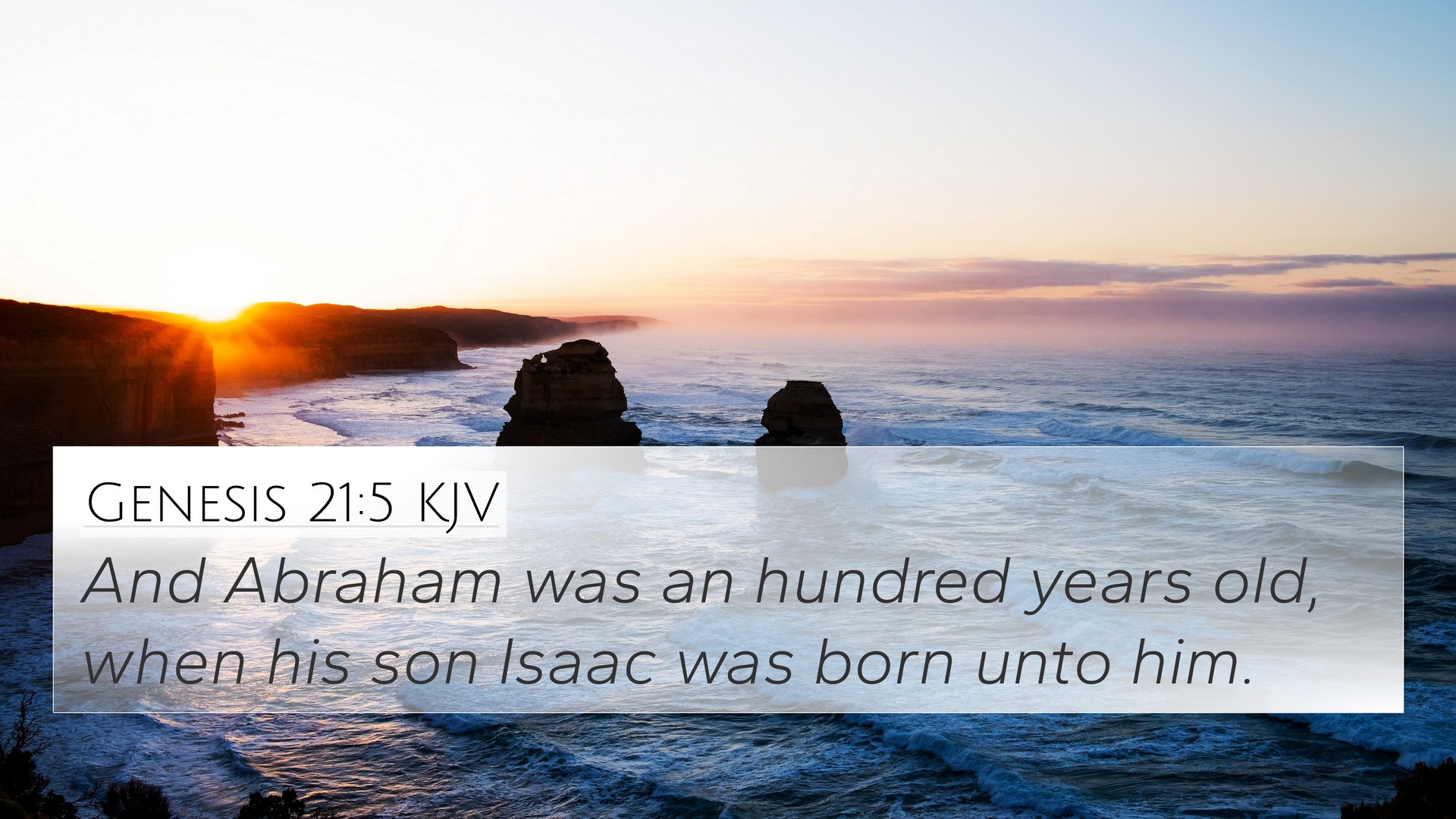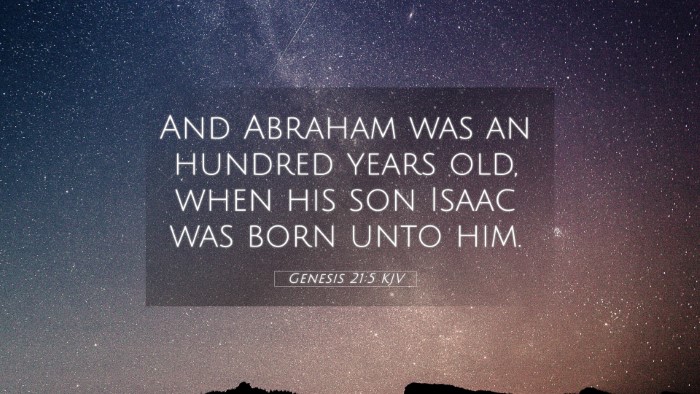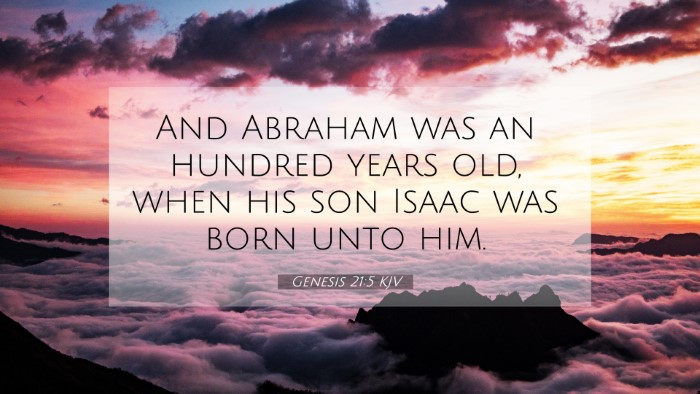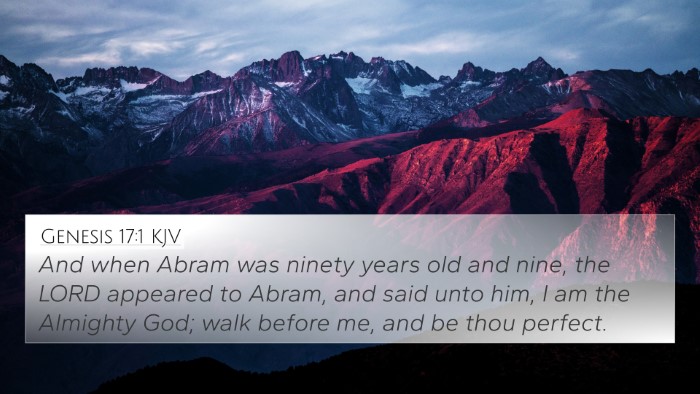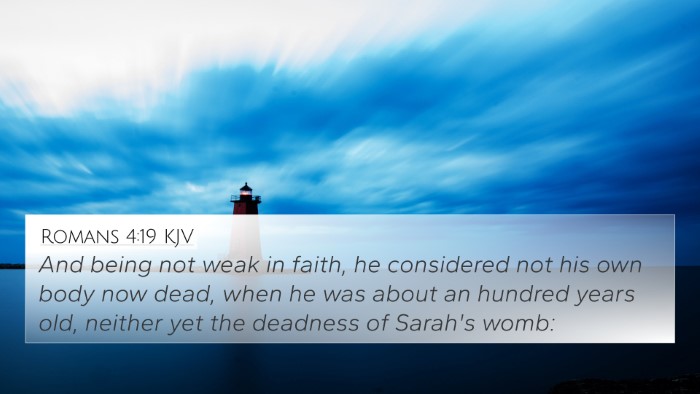Understanding Genesis 21:5
Genesis 21:5 states, "And Abraham was a hundred years old, when his son Isaac was born unto him." This verse holds significant meaning in the larger narrative of Abraham's life and the fulfillment of God's promises.
Significance of Abraham's Age
Abraham being one hundred years old emphasizes the miraculous nature of Isaac's birth. Public domain commentaries provide insights that illustrate Abraham and Sarah's faith in God’s promise despite their advanced age.
- Matthew Henry: He notes that God's covenant with Abraham was realized in Isaac's birth, reinforcing the importance of divine timing.
- Albert Barnes: Barnes highlights the connectedness of this event to the fulfillment of promises made earlier in the text, reflecting God's faithfulness over time.
- Adam Clarke: Clarke draws attention to the unusual nature of the situation, emphasizing the divine intervention needed for a child to be born to a couple so advanced in years.
Thematic Bible Verse Connections
This verse connects to several key themes within the Bible, such as promise, faith, and the covenant relationship between God and His people. The miraculous aspect of Isaac's birth also prefigures other significant births within Scripture.
Cross-Referencing Biblical Texts
Genesis 21:5 does not exist in isolation; it correlates with multiple other scriptures. Here are some key cross-references that deepen understanding:
- Genesis 12:2-3: The promise of a great nation through Abraham.
- Genesis 17:17: Abraham's initial concern about having a child at his age.
- Hebrews 11:11-12: New Testament reflection on Abraham's faith regarding Isaac's birth.
- Romans 4:19-21: Paul's commentary on Abraham's faith amidst impossible circumstances.
- Galatians 4:22-24: The allegorical significance of Sarah and Hagar's sons.
- 1 Peter 3:6: Offers insight into Sarah's faith, linking her back to the trust in God’s promise.
- Matthew 1:2-16: The genealogy of Jesus shows the fulfillment of God's promise through Isaac's line.
Connections between Old and New Testament
When exploring connections between the Old and New Testament, Genesis 21:5 serves as a foundational moment that echoes throughout Scripture:
- Miraculous Births: Several other miraculous births in the Bible, such as Samuel (1 Samuel 1) and John the Baptist (Luke 1), resonate with Isaac's birth narrative.
- The Concept of Faith: The New Testament emphasizes faith as seen in Hebrews 11, linking back to Abraham's belief in God's promise despite apparent impossibilities.
- Covenantal Continuity: The covenant established with Abraham and fulfilled through Isaac is echoed in the New Covenant established in Christ.
Inter-Biblical Dialogue
The story of Isaac challenges and expands the theological implications of faith, promise, and the expectations of God's involvement in human history.
Conclusion
Genesis 21:5 encapsulates a remarkable moment that illustrates God's faithfulness in fulfilling His promises against all odds. By cross-referencing with other verses, we glean a richer understanding of the biblical narrative, connecting themes of faith, covenant, and miraculous intervention. Understanding how these verses interrelate provides tools for deeper Bible study and insights into the overarching message of Scripture.
